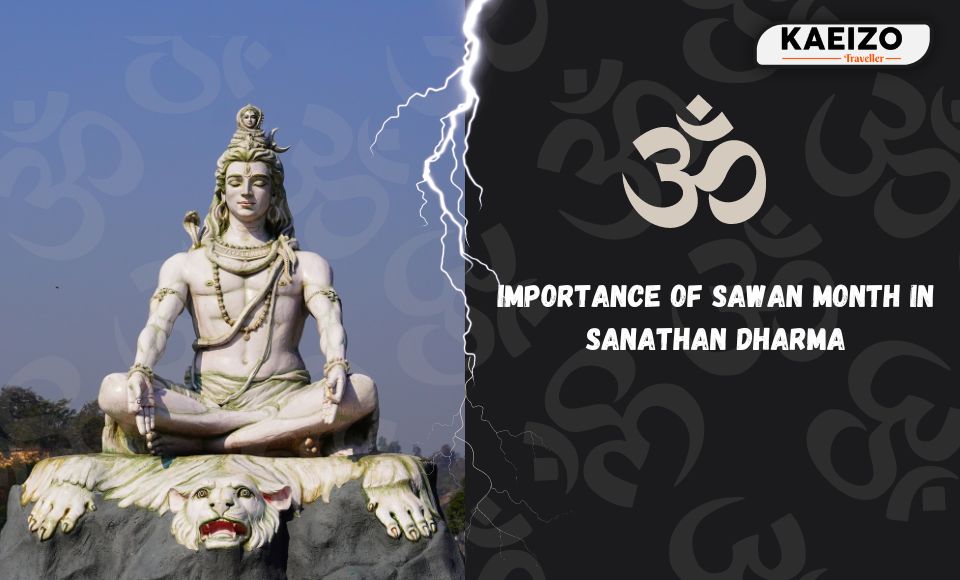
Pilgrimage
Importance Of Sawan Month In Sanatan Dharma
Sawan, also known as Shravan or Shravana, is a highly significant month in Sanatana Dharma (Hinduism). It usually falls in July-August according to the Gregorian calendar. The month of Sawan is dedicated to Lord Shiva and is considered one of the holiest months in the Hindu calendar. Here are the key aspects of its importance:
1. Devotion to Lord Shiva
- Shiva Worship: Devotees perform special rituals and prayers to Lord Shiva, visiting temples, offering milk, water, bilva leaves, and other sacred items. Mondays in Sawan, known as Sawan Somvar, are especially significant, with devotees observing fasts and performing special prayers.
- Kanwar Yatra: During Sawan, millions of devotees, known as Kanwariyas, undertake a pilgrimage to fetch holy water from the Ganges River and offer it to Shiva temples, especially in Haridwar, Gaumukh, and other sacred places.
2. Spiritual Practices
- Fasting: Many Hindus observe fasts during this month, particularly on Mondays. Some people follow a strict vegetarian diet and avoid certain foods to purify their body and mind.
- Meditation and Chanting: Devotees engage in meditation and chant mantras dedicated to Lord Shiva, such as the Maha Mrityunjaya Mantra and Om Namah Shivaya, seeking spiritual upliftment and blessings.
3. Mythological Significance
- Samudra Manthan: According to Hindu mythology, the churning of the ocean (Samudra Manthan) took place during this month. During this event, a deadly poison emerged, which Lord Shiva consumed to save the universe, holding it in his throat. This act earned him the name Neelkanth, meaning the blue-throated one.
- Marriage of Shiva and Parvati: Sawan is also believed to be the month when the divine marriage of Lord Shiva and Goddess Parvati took place. Thus, it is an auspicious time for performing rituals and seeking blessings for marital bliss and harmony.
4. Cultural Significance
- Festivals and Fairs: The month is marked by various festivals and fairs, where people come together to celebrate and participate in cultural activities. The Teej festival, celebrated by women for marital happiness and well-being, falls during this period.
- Rituals and Traditions: Sawan is a time when many traditional rituals and practices are observed with great devotion and enthusiasm. These practices are passed down through generations, reinforcing cultural values and religious teachings.
5. Environmental and Seasonal Importance
- Monsoon Season: Sawan coincides with the monsoon season in India, a time of renewal and growth in nature. The rains bring relief from the summer heat and rejuvenate the land, symbolizing prosperity and abundance.
- Agricultural Practices: Farmers welcome the rains of Sawan as they prepare their fields for the next planting season. The month is seen as a blessing for agriculture and is often associated with prayers for a good harvest.
In summary, the month of Sawan holds immense religious, spiritual, and cultural significance in Sanatana Dharma. It is a time of deep devotion, ritual observance, and community celebration, dedicated to honoring Lord Shiva and seeking his divine blessings.
4o




